The CARES Act includes several provisions to encourage charitable giving and bolster household income. These provisions may be used to encourage donors now—and for the remainder of 2020.
For Major Donors
Elimination of AGI limits for individuals and increased limits for corporations
High-net-worth households can deduct charitable gifts (cash only) up to 100% of their adjusted gross income, effectively eliminating their federal tax liability in 2020.
Gifts to donor-advised funds do not qualify. This is meant to encourage direct support for organizations that are struggling with reduced revenue, increased demand for services, or both.
Households that rely primarily on assets (vs. annual income from compensation) will find this very attractive. Gift officers can share thirdparty literature (see our “Donor’s Guide to the CARES Act”). Then follow up to discuss the donor’s interest and ability to eliminate their federal taxes for 2020.
Corporations will also have an opportunity to claim deductions of up to 25% of taxable income.
The increase in gift deductions may provide opportunities to discuss new gifts, or to prepay an existing multi-year pledge.
Note: a carryover provision applies if charitable contributions exceed 100% of the household’s adjusted gross income.
For Middle Donors
Not everyone needs “Recovery Rebates”
Eligible households will receive payments of up to $2,400 (joint filers) plus $500 per child.
For many, these are an essential lifeline. But some households may not need the cash—such as those who continue to work and receive compensation, or retirees who draw on assets.
Appeals to this segment of donors will need to be very carefully timed and worded. Consider:
- Segment your database to determine likely candidates: those who have given consistently and generously, whose wealth screening indicates qualifying income levels, and whose jobs are likely continuing (professionals, etc.).
Lean heavily on third-party messengers, like these suggestions from Forbes or the New York Times, or our guidance on Donors and the CARES Act.
- or our “Donor’s Guide to the CARES Act” to suggest gifts from stimulus checks.
- If you have existing donor societies in the $1,200 to $2,400 gift range, this may be a moment to encourage upgrades.
- DON’T ask donors directly to contribute from their stimulus checks. Rather, time your appeals so they coincide with the receipt of checks, and perhaps share a story of a donor who gave from her/his stimulus payment.
For the Broad Base
$300 Universal Charitable Deduction
Non-itemizers (about 90% of all households) can claim a deduction for up to $300 in charitable giving— and possibly* $600 for a household filing jointly. To encourage these gifts:
- Add $300 and $600 giving levels to all online and print donation forms.
- Share examples of the impact that $300/$600 can have—the more specific, the better. For example: “$300 will allow us to produce four microlearning videos,” or “We can provide 40 activity kits for students with your gift of $600.”
- Include charitable deduction language on all direct-response appeals—including requests to convert memberships or special event tickets into outright gifts.
- Issue challenges at these gift levels as a part of your annual appeal or Giving Day.
- This could be an opportunity to acquire new donors, so avoid text-to-give or digital platforms that do not provide specific donor contact information.
*encourage donors to consult with their own tax advisors since the guidance from the IRS is unclear.
Additional Thoughts
Donors are uncertain, and lack of certainty creates friction in any economic system. What can you do? What should you know?
For Major and Planned Gift Officers
- Reach out and listen. Many donors are anxious (about the market, about their health vulnerability, about their isolation). The best thing an organization can do is show that it cares. Many gift officers find that the conversation will evolve to a discussion of gifts and estate plans.
- People are planning. There has been an increase in Google searches for “making a will.” The online estate planner FreeWill has reported a “huge spike” in activity. People are planning—with or without consulting their charity of choice. So, while it may be problematic to bring up estate giving during a pandemic, be prepared to answer questions.
- Even in a downturn, some people prosper. Try to determine candidates for windfall gifts at this time—those who invest in real estate, or take contrarian market positions. These are the donors who will seek to wipe out their tax liability by giving at least 100% of their AGI.
- Despite the moratorium on required minimum distributions, donors can still make a qualifying charitable distribution from their IRA: be prepared to suggest this later in the year.
- In the midst of a capital campaign? Be flexible, and a bit creative, in working with major donors to construct multi-year pledges.
- Donors are relying on their DAFs to maintain support of the charities they care about. Make sure you know who supports you from a donor-advised fund, and prioritize outreach to them.
- During times of financial insecurity, charitable gift annuities look like a safe haven. Make sure that yours is ready for a spike in activity (and, if your organization doesn’t offer CGAs, reach out to your local community foundation or another partner).
For Corporate Giving and Foundation Relations Staff
- Charitable deductions are raised for corporations, too: to 25% of income. When a corporation supports your organization, make sure that the link to crisis relief is apparent to their shareholders, customers, and workforce.
- Many organizations are reporting that institutional funders are relaxing their policies. Event sponsorships and designated grants are being converted into outright, unrestricted gifts.
- Foundations’ grantmaking won’t fall as far or as fast as the market. Foundation payouts will be calculated on a three-year look-back, so the gains of 2017 to 2019 will diminish the impact of this year’s decline (if we haven’t recovered by year end).
For Donor Society and Annual Giving Teams
- Appeals for “emergency aid” for employees, caregivers, students, or patients can be appealing, but beware of potential pitfalls, including:
- They often don’t provide support for the day-to-day operations that have been compromised by the current economic crisis.
- They require careful internal planning and policies. How will you distribute the funds, and how will you ensure that payments don’t compromise the recipients’ unemployment?
- Don’t waste a good crisis! Do you have a special event that was becoming stale? A volunteer corps that has diminished its impact? Now is the time to assess, reinvent, or quietly wind down underperforming activities.
For All Who Work With Donors
- Portions of the CARES Act are unclear. Only CASH gifts qualify for those donors seeking to give 100% of AGI—but does that apply to all giving or only the 40% increase? What is the carryover provision? Does the $300 deduction get doubled for joint filers? Congress may eventually clarify the act; in the meantime, urge all donors to consult their own tax advisors.
Benefactor Group does not provide tax, legal, or accounting advice. This material has been prepared for informational purposes only, and is not intended to provide, and should not be relied on for, tax, legal, or accounting advice. Donors should consult their own tax, legal, and accounting advisors before engaging in any transaction.
For more information, please visit our Resources for Uncertain Times page.





